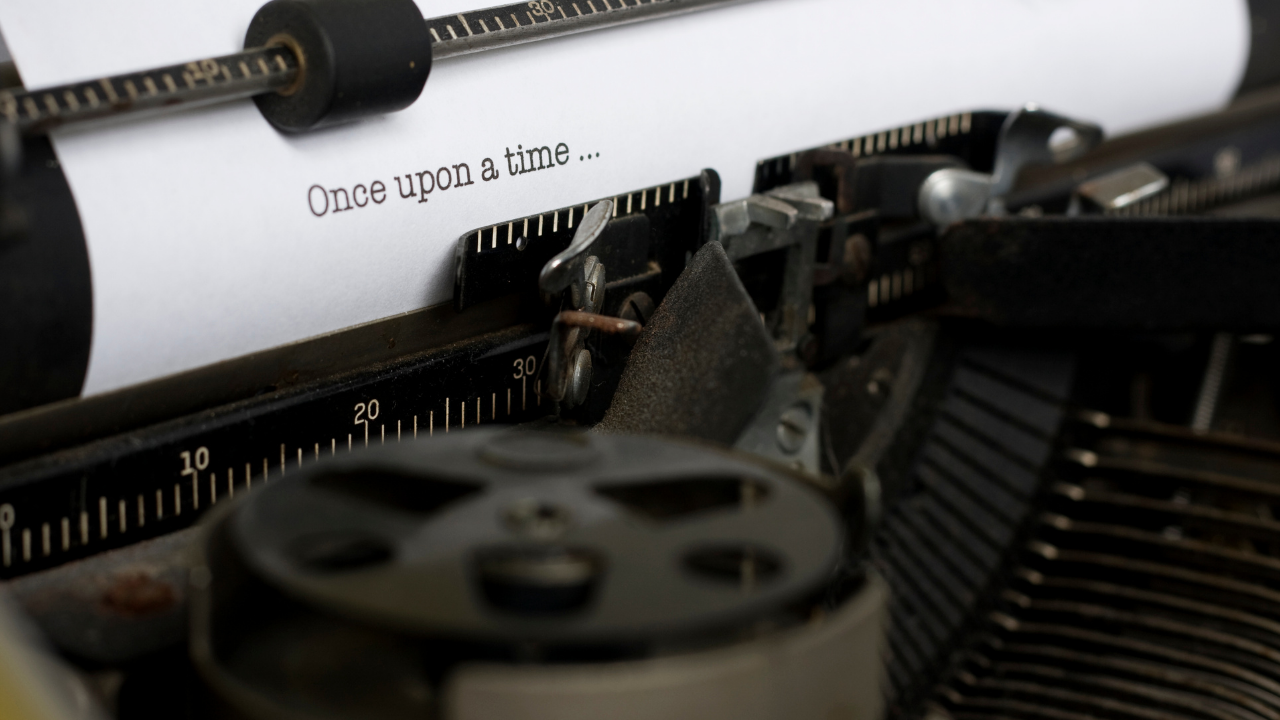path of the storyteller / blog
You’ve lost faith in your work. Now what?
Have you ever lost faith in your work?
Faith that it’s good?
Faith that you’ll finish it?
Faith that this writing thing is even worth pursuing?
Writing can stir up so many feelings, my friends. And there are times like this, where our resistance transcends mere frustration or fatigue or “why is this taking so long?” crabbiness, and sinks into a deeper kind of doubt.
The kind that makes us feel like we no longer believe in what we’re doing.
We all go through this. We would not be human if we didn’t.
Today I want to talk about this powerful idea of our faith in our work. Where does it come from when we have it, and where does it go when we lose it?
Is there a way to get it back?
Do we even need to have faith our work to keep going? The answer might surprise you.
p.s. – This topic is in response to a real question submitted to me recently. I’m so grateful for this terrific, vulnerable, and oh-so-relatable question! If you have questions you’d like me to discuss on future...
Action and motivation are the keys to great storytelling
“What’s my motivation?” It’s the classic actor’s question, but writers depend on it too. Let’s talk about all the reasons your characters do the things they do.
You probably know that I spent my formative years working in the theatre. What a valuable experience! Among the storytelling lessons I learned was this:
Every action has a motive.
It’s the classic actor’s question: What’s my motivation? Story doesn't happen without it. But just in case you missed that day in drama class, let me define some terms:
Action is what a character does.
There's a reason they call it acting. Characters act. They do stuff. They walk. They talk. They pour another glass of booze (Who’s Afraid of Virginia Woolf?), hide behind the curtains and eavesdrop (Hamlet), and run their enemies through with a sword (also Hamlet).
Our characters explore spooky attics and travel through dangerous terrain. They trade riddles with dragons and write passionate love letters while pretending to be someone they’re ...
Big wants, little wants
What does your hero want?
This is the core question of storytelling, but writers don’t always find it easy to answer.
What do any of us want? To be happy, or happier. To love and be loved. To achieve some particular goal that has meaning to us. (Whether this goal is an admirable one depends a bit on the person wanting, of course!)
Put it all together and we all basically seek to live a life that feels like it matters, to avoid suffering and to experience contentment, achievement, and connection along the way.
So: If we all want some version of same things, what is it that makes our hero’s wants story-worthy? How do we use these wants to shape our plot, not only on a book-length level, but scene by scene?
What I want today is to talk about wants as they pertain to your storytelling! There are big wants and little wants, and they are (or should be) pulsing on every page you write.
The hierarchy of needs
Writers are (or should be) obsessive students of human motivation. When we craft a tale, we’re always looking at our characters’ conscious and unconscious motives. We devise whole plots out of the reasons our characters do or fail to do things (I’m looking at you, Hamlet). And we draw powerful forces of opposition from the characters whose motives collide with our hero’s.
Which brings us to the the topic of this week’s livestream: Maslow’s hierarchy of needs, a useful and enduring psychological theory about what motivates humans to do the things we do, value the things we value, choose our priorities, and define our vision of “success.”
What’s at the pinnacle of our personal hierarchy? Is it relationships? Self-fulfillment? Prestige and achievement? Or are we mostly just trying to survive?
Abraham Maslow’s model of human motivation is a fascinating topic in its own right, but for us storytellers it’s pure gold. This week, let’s explore how this intriguing theory can deepen characte...
how fast should you write?
I once got annoyed when a colleague casually observed that I was a “slow” writer. I mean, I've published a lot of books. How slow could I be?
Is a writer who takes eighteen months to finish a publishable manuscript really that much slower than a writer who takes three months to scribble a draft that then takes two years of revision to be salable?
We all have our preferred process, and that’s great—but these labels can really get in the way. “How long did it take you to write it?" is asked so frequently of published writers!
I'm old enough and humble enough to grasp that the popularity of the question is not because anyone is that interested in Maryrose and her deadlines! What’s really being asked is something along the lines of:
How long should it take me to finish a book?
Am I going too slow? I am, aren't I?
WHY IS IT TAKING SO LONG? I'm no good, that's the only explanation.
If I were meant to do this it wouldn't take me so long.
And so on.
Alongside the concern about slowne...
shhh! mommy’s writing
I didn’t start writing fiction until I was in my forties. Did you know that?
I was a single mom with two kids at home. We homeschooled. In the middle of it all, my own mom was struck with a terminal illness and I became her chief caregiver until she passed away.
I was lucky in that I didn’t also have a full-time job outside the home, but honestly, I could have used one. I taught part-time and wrote part-time and mothered part-time and was a caregiver part-time. There were more parts than time, that’s for sure!
This is what my life was like while I wrote the early books in the Incorrigible Children of Ashton Place series. I share this with you not because I think it’s shocking or worthy of any special praise, but precisely because it’s so ordinary.
Writers are people. People have lives. Life is busy and full of challenges, and we all wear many, many hats.
I often hear from writers (mostly women, mostly moms) who tell me how they love to write, and long to write. It is the dream....
writing from the heart
That first tender urge to write stirs from something quite personal and private. We have an idea, a feeling, a desire to capture in words something that moved or mystified us.
And yet, to write well means charting a path from that most private beginning to a more reader-centric focus. How exposed do we need to be in our work? How thick of a skin must we cultivate to actually publish? What about privacy? Is there stuff we shouldn't write about?
Writing advice is plentiful, and writing craft matters (a lot) — but your writing comes from YOU. How do we writers balance the deeply personal impulse to write with the external concerns of putting our work into the world? That’s the topic of this week’s livestream.
My weekly livestream happens on Wednesdays at 1 PM Pacific. Come live and participate! Or catch the replays here on the blog.
To watch live and ask questions, you can join the Path of the Storyteller Facebook group right here.
And subscribe to the YouTube channel here.
...
marathon

I’ve often said to my students: The biggest hurdle we writers face is not mastering the craft, or navigating the industry, or even finding the time and money to carry on writing.
Those are all real challenges, for sure. But they’re not the ones that threaten to scuttle the ship.
No. The biggest hurdle is managing our anxiety about the work. The inner monologue goes something like this:
Is it good? Am I good? Or at least, good enough? Will this be the book that gets finished? Will this be the one that lands me an agent? Will this be one that breaks out? Am I doing this writer thing right? Should I even be doing it at all?
The list goes on. Writers never seem to get writer’s block when it comes to penning words of self-doubt and second-guessing.
Why so? It’s a big question. Here’s my short answer: The very nature of writing simulates consciousness. The voice in my head that feels like "me” finds expression in the words on the page that are also, somehow, me.
This makes the whole e...
back to work

When I was eighteen years old, I had a truly extraordinary stroke of luck
It was 1980 and I was an acting student at NYU, in the fall of my sophomore year. I was not a great student, honestly. To succeed in the New York theatre was my dream, but there was much about it that flew way over my naïve suburban head.
But luck found me nevertheless. After attending an open audition for a new musical with a score written by Stephen Sondheim, one of my idols, I was cast in a Broadway show.
Recall that I was eighteen. I was a student. My resume was a list of all the school plays I'd been in during high school. How could this happen?
Nevertheless, it happened. That show was called MERRILY WE ROLL ALONG, and it was directed by Broadway legend Harold Prince.
There are so many great Hal stories. Many have been told and retold, but one that sticks with me was his career-long practice every time he opened a new show. Whenever opening night was, he’d schedule a meeting in his office the next mo...
the practice of writing

“How do you get to Carnegie Hall?” It’s an old joke, and the punchline, of course, is “practice!”
“Head north on Broadway and make a right on 57th Street” is also a correct answer, but it limits itself to physical circumstances only. Such literal-minded directions might get you to the door of the building, but they won't make you a world-class player. Only many, many hours of tush-on-bench with guidance from a worthy instructor will achieve that outcome.
My ruminations yesterday about story energy are the fruits of a lifelong practice in the storytelling arts. A mix of study, mentorship, and a huge volume of hands-on doing has served me well. To incline toward action is advice worth its weight in gold; if you don’t write a lot, your writing will not improve.
If your writing is not all you wish it were, that’s all the more reason to produce more of it. Write, write, write! Write straw today so you can spin it into gold tomorrow. The only way out is through.
As to where to find tho...


